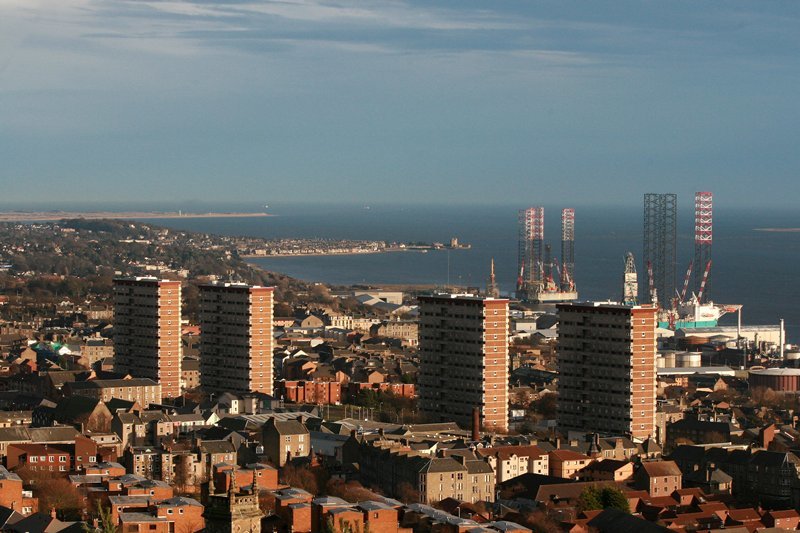Dundee has the most expensive welfare bill of any Scottish city and the third highest in the UK, a damning new report has revealed.
The Cities Outlook 2011 (link to .PDF) paints a grim picture for Dundee as the city struggles to emerge from the recession.
According to the report, published by the Centre for Cities think tank, Dundee’s population is falling at a faster rate than any of the other towns or cities in the UK and is one of only a handful of places to record an increase in Jobseekers Allowance claimants over the past year.
Although there are some positive developments revealed in the report such as wages rising faster than most other places in the UK it paints an overwhelmingly bleak picture of Dundee in 2011.
Dundee’s welfare bill works out as £3301 per person in the city, third only behind Liverpool and Birkenhead, where welfare costs £3371 and £3398 per capita respectively.
Glasgow’s welfare bill is only marginally less at £3138 per year but people in Dundee pay far more than their counterparts in Edinburgh and Aberdeen where the cost is £2313 and £2296 per capita.
The report also predicts that Dundee will lose the highest proportion of public sector jobs of any city in Scotland. Around 1500 positions are expected to be lost in Dundee 2.06% of all jobs in the city.
Although Aberdeen is set to lose a greater number of public sector jobs 1800 in total this is only 1.02% of the total jobs in the city.
Dundee also has the seventh highest rate of Jobseeker’s Allowance claimants in the country, with 5.2% of the working age population now on benefits. And the city’s population is shrinking by 0.32% each year.
The report states, “In Dundee’s case, this is mainly due to industrial restructuring, which has led many highly skilled residents to leave the city.”
However, there was better news for Dundee in the relatively high number of new businesses starting up.PerformanceIn 2009, the city had 22.7 business ‘births’ for every 10,000 people while the ‘death’ rate was slightly higher at 23.4 per 10,000. Only oil-rich Aberdeen and Oxford beat Dundee’s performance during the year.
The report also states that Dundee had the second highest rise in average wages between 2006 and 2009. Weekly earnings went from £374 per week to £395. Only Hastings recorded a higher increase but Dundee earnings remain far below the UK average of £444 a week, despite it dropping from £451 over the same period.
Chief executive of the Centre for Cities Alexandra Jones said, “During 2011, the UK cities most dependent on the public sector, and which have seen slower economic growth over the last decade, will find it more difficult to rebalance towards the private sector.
“These cities will need realistic plans of action to ride out the spending cuts and create jobs but they will also need additional financial support from central government.”
Trades Union Congress general secretary Brendan Barber said, “This report paints a mixed picture of how the UK is emerging from recession. It’s great that some areas may be starting to bounce back, but many towns and cities, particularly in the north, are failing to see any sort of recovery.
“Vulnerable cities are suffering from low skills and high joblessness that hit consumer spending and business investment but instead of providing financial support the government is piling on the misery with deep welfare cuts.”
A spokesman for the Department of Business said, “It is reassuring to see that there are areas of the country that are starting to see an economic recovery, particularly areas which were badly hit by the recession.
“However, we need to make sure that all parts of the country begin to see the benefits of economic recovery, and the government is doing all it can to help with this.”
The report concluded that Milton Keynes, Reading, Aberdeen, Leeds and Bristol are in the best position to recover from the recession while Sunderland, Liverpool, Birkenhead, Swansea and Newport would take the longest to recover.Read the full report by clicking here.
